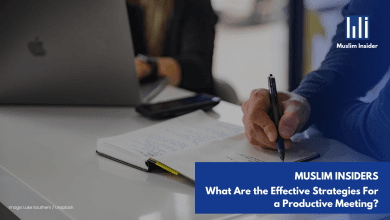
Slowing down helps leaders make better decisions and feel even more confident and powerful. This comes from taking time to recognize the critical details rather than missing them out completely. This is because constantly being on the go can leave an individual feeling exhausted. It can be impossible to keep up with the same fast pace since everyone has their limits.
Eventually, this can lead to burnout, which we want to avoid. This is where slowing down becomes crucial. Taking time to pause and reflect allows for better planning, reduces stress, and helps to manage workloads more effectively, ultimately leading to greater productivity and well-being. It will also help leaders make informed choices and a greater sense of control and effectiveness.
Why is slowing down the best approach?
Constantly rushing may indicate a lack of planning, organization, and time management skills. When you’re always in a hurry, you’re more likely to make mistakes, feel overwhelmed, and miss important details. This can lead to stress, poor decision-making, and missed opportunities for growth and improvement.
Know when to pause. Slowing down allows you to approach tasks with clarity, prioritize effectively, and make better decisions. It helps you focus on quality rather than speed, ensuring that your efforts lead to meaningful and lasting results. Therefore, it is crucial to recognize when to slow down, reflect, and give yourself the space to work with purpose.
If you think that slowing down can result in being less productive, then it might mean that a better strategy is needed. Slowing down will work when you allocate time to make better plans, focus on quality and constantly reflect and assess your progress.
Recognize External Influences
Pressures can come in a variety of form. For instance, today leaders are facing significant pressure to adopt artificial intelligence (AI) in their business. This can create a sense of urgency. Without a proper approach, adopting this technology may impact the teams and the business itself. Recognizing and managing these external influences is crucial for making informed decisions and ensuring a smooth transition.
Identify sources of pressure. Leaders who excel at managing pressure have the clarity to recognize what’s not worth stressing over. It could be from people or from the task itself. They know what tasks to put priority on, which makes them appear calmer. When a decision is done in a more composed manner, the brain will be able to think clearly to make informed decisions. This is
Take time to reflect. The best leaders allow themselves the time to think things through. This makes the development of self-awareness, which is a valuable quality for leaders. Through reflection, leaders can identify which areas need improvement, recognize patterns and see how the world works. By doing this regularly, it will lead to more intentional and informed decision-making.
Seek support. Things can get really overwhelming when you have to juggle multiple tasks, facing uncertainties and lacking time management. The best leaders get support from their own circle, colleagues or mentors. It will help alleviate stress by receiving the encouragement and support that you need.
What happens if you can’t recognize when to slow down?
Not everything needs to be done quickly. If you are always in a rush, you might miss out on the blessings and opportunities that come with patience and careful planning. In Islam, it is believed that your rizq (sustenance or provision) is already determined by Allah SWT. However, it is still your responsibility to take the right actions and put in effort to earn it.
Being in a hurry can lead to:
- Making poor decisions
- Prone to make mistakes
- Limit awareness of surroundings
- Feeling of overwhelmed and stressed
- Missing valuable opportunities
Trusting in Allah’s timing and balancing effort with patience can lead to better outcomes.
Conclusions
The art of slowing down is not merely a strategy for enhancing productivity. It is an essential leadership skill that makes better decision-making, promotes well-being, and cultivates a sense of control. By recognizing the importance of pausing to reflect, leaders can work with clarity and purpose. Ultimately, this will lead to more informed and impactful choices. Embracing a slower pace in a world that often glorifies speed and urgency can yield the best outcomes. Thus, great leaders not only thrive in their environments but also inspire those around them to appreciate the value of reflection, intentionality, and the wisdom of trusting in the timing of their efforts.




